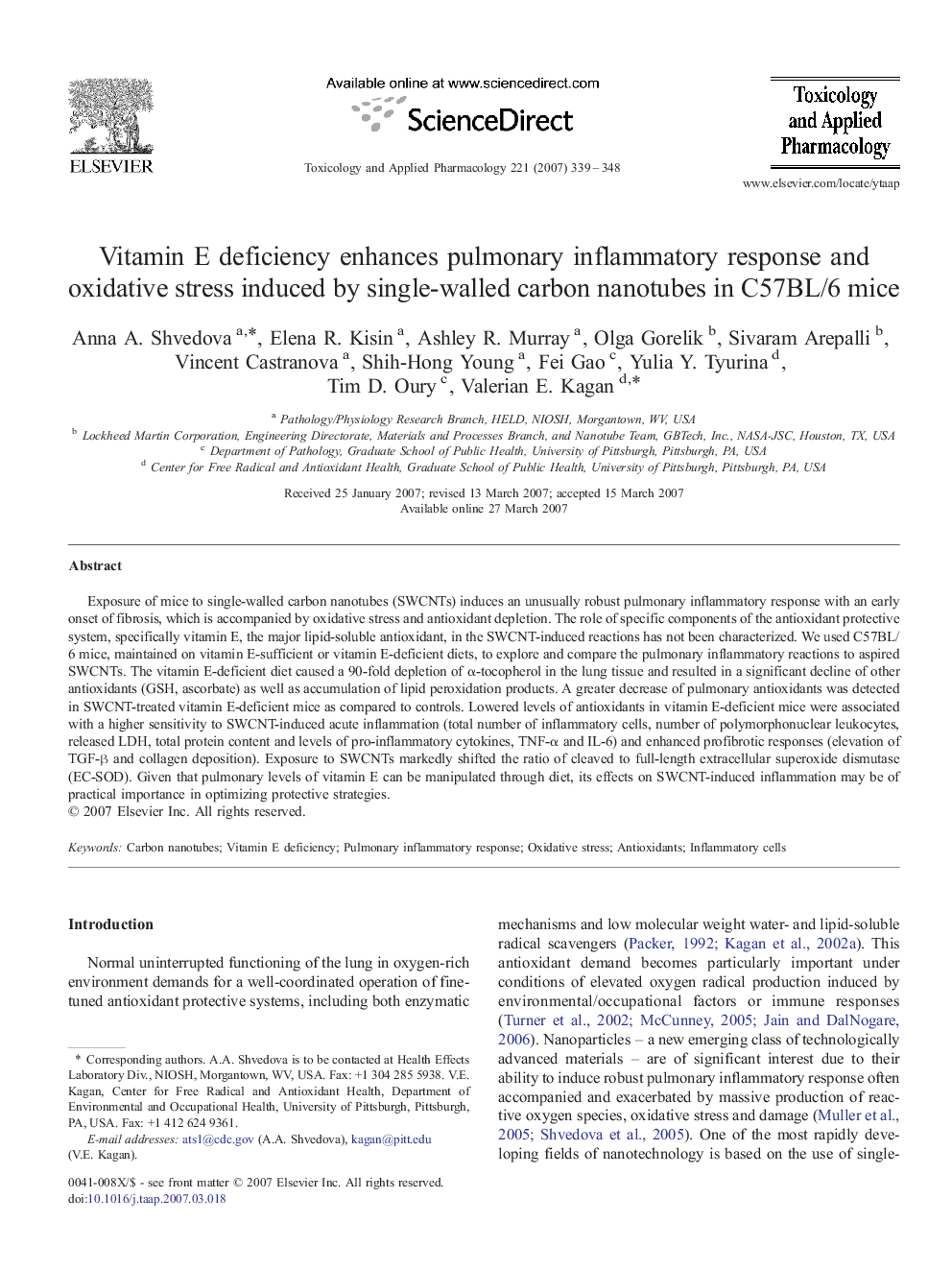| Article ID | Journal | Published Year | Pages | File Type |
|---|---|---|---|---|
| 2571298 | Toxicology and Applied Pharmacology | 2007 | 10 Pages |
Exposure of mice to single-walled carbon nanotubes (SWCNTs) induces an unusually robust pulmonary inflammatory response with an early onset of fibrosis, which is accompanied by oxidative stress and antioxidant depletion. The role of specific components of the antioxidant protective system, specifically vitamin E, the major lipid-soluble antioxidant, in the SWCNT-induced reactions has not been characterized. We used C57BL/6 mice, maintained on vitamin E-sufficient or vitamin E-deficient diets, to explore and compare the pulmonary inflammatory reactions to aspired SWCNTs. The vitamin E-deficient diet caused a 90-fold depletion of α-tocopherol in the lung tissue and resulted in a significant decline of other antioxidants (GSH, ascorbate) as well as accumulation of lipid peroxidation products. A greater decrease of pulmonary antioxidants was detected in SWCNT-treated vitamin E-deficient mice as compared to controls. Lowered levels of antioxidants in vitamin E-deficient mice were associated with a higher sensitivity to SWCNT-induced acute inflammation (total number of inflammatory cells, number of polymorphonuclear leukocytes, released LDH, total protein content and levels of pro-inflammatory cytokines, TNF-α and IL-6) and enhanced profibrotic responses (elevation of TGF-β and collagen deposition). Exposure to SWCNTs markedly shifted the ratio of cleaved to full-length extracellular superoxide dismutase (EC-SOD). Given that pulmonary levels of vitamin E can be manipulated through diet, its effects on SWCNT-induced inflammation may be of practical importance in optimizing protective strategies.
